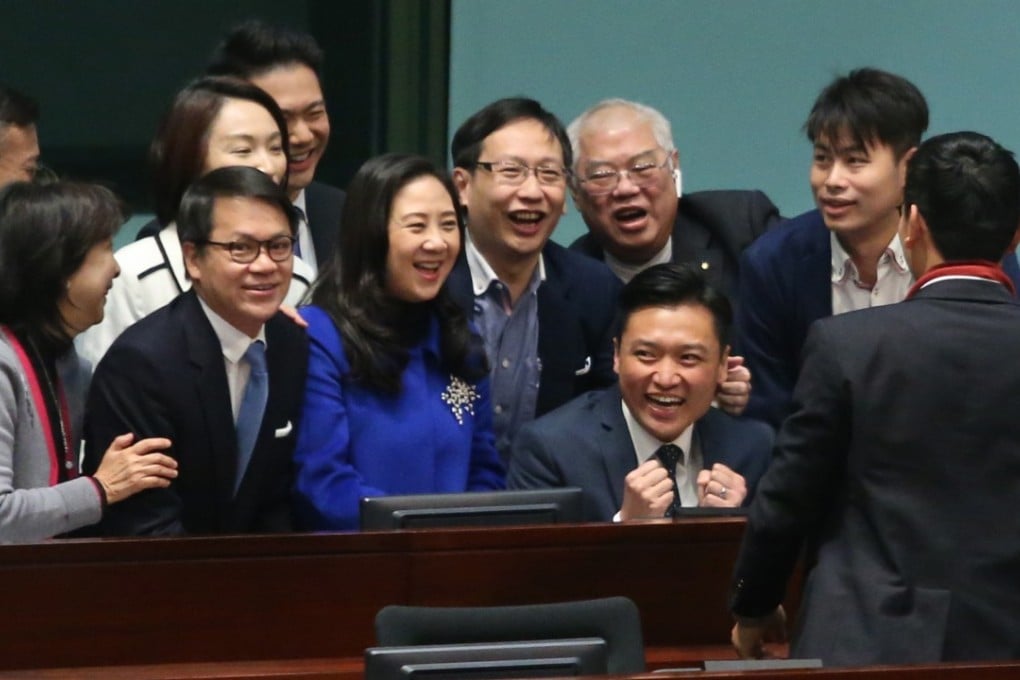Can a young lawmaker’s success spur renewal in Hong Kong’s pro-establishment ranks?
After winning a pro-democracy stronghold in last month’s by-election, the city’s Beijing-friendly parties are looking to the future. In the second of a two-part series, Tony Cheung looks at the issues involved in political succession

When 38-year-old Vincent Cheng Wing-shun won the Kowloon West seat last month in Hong Kong’s Legislative Council by-election, the pro-establishment camp rejoiced.
It was the first time since the city’s return to Chinese rule in 1997 that they had swept a geographical constituency seat in a by-election, and not least in an area known to be a pro-democracy stronghold.
With Cheng’s win, 13 of the 42 pro-establishment lawmakers in the 68-strong legislature are relatively youthful and below the age of 45. It has cast a spotlight on how the Beijing-friendly group will renew its ranks, given that the camp’s political opponents have a pipeline of youthful and enthusiastic faces.
At just 21, Demosisto’s Agnes Chow Ting would have been the youngest lawmaker if elected, but she, along with 24-year-old localist Ventus Lau Wing-hong, was banned by electoral officials.
Only Au Nok-hin, 30, an unaffiliated legislator but supported by Demosisto, made it to Legco.
With the ban imposed on Chow suggesting the government could bar similar candidates from running in elections in the future, there is no doubt that Occupy activists, and young Hongkongers seeking a legitimate space in the political landscape, face a rocky path ahead.